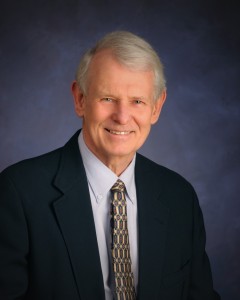By John McClaughry
On July 20, Gov. Phil Scott issued an executive order creating a 21-member Climate Action Commission. Scott named as co-chairs his Deputy Secretary of Natural Resources Peter Walke and Vermont Council on Rural Development Executive Director Paul Costello.

John McClaughry is vice president of the Ethan Allen Institute.
The governor charged the commission to come up with at least three tangible proposals by the beginning of 2018. By next July he expects an “action plan” that reduces the state’s greenhouse gas emissions “while driving economic growth, setting Vermonters on a path to affordability, and ensuring effective energy transition options exist for all Vermonters.”
As I and others observed at the time, the governor’s ground rules severely constrict the range of proposals available to the commission.
Consider the most heavily promoted greenhouse gas emissions proposal of the past few years, the VPIRG carbon tax. This is now described by its advocates as “pricing carbon pollution,” since the idea of a $500 million tax and a promised $450 million worth of rebates to selected beneficiaries did not produce the hoped-for groundswell of support from tax-sensitive voters.
Ask yourself, would such a tax and rebate scheme “drive economic growth,” other than for the subsidized renewable energy and insulation businesses? Some advocates make that argument, but it’s a hard sell.
Would “pricing carbon pollution,” even if the promised rebates materialized (not at all certain), make Vermont more affordable for ordinary people dependent on gasoline, diesel, propane, natural gas and heating oil? Or would it increase their costs of food, shelter, and transportation? Another hard sell.
Would a carbon tax bring some kind of transition option, like paying thousands of people to drive electric cars or abandon natural gas and oil heat for their homes? What about the other taxpayers and ratepayers who are forced to do the paying?
Of course, the carbon tax is off the table, since Gov. Scott has repeatedly promised to veto any such proposal. So is industrial wind, which Scott has emphatically rejected. But there are many other less glaringly controversial proposals than “pricing carbon pollution” that would have to pass Scott’s acceptability filter.
There are energy efficiency and conservation proposals that make sense, but I can’t think of any of the numerous proposals put forth by VPIRG and Gov. Shumlin that would not make a small number of lucky people better off, at the expense of the large majority of ratepayers and taxpayers.
But, say the climate action advocates, every human being on the planet will be better off when enlightened government policies — taxes, mandates, subsidies and the like — stabilize the carbon dioxide concentration of the earth’s atmosphere at the present 4 molecules per ten thousand, instead of increasing it to six or eight per ten thousand. Or better yet, when we adopt heroic measures to reduce CO2 concentration to fewer than three molecules per 10,000, the level in pre-industrial (and significantly colder) years, like 1850.
The Climate Action Commission’s initial “listening tour” session took place in St. Johnsbury on Sept. 16. It was totally unstructured. Chairman Walke, joined by three of the other 20 members who sat mute through the first 90 minutes (at which point I left), offered no opening statement, no context, no conditions, no ground rules – only an invitation to the audience of 60 to “tell us what you want us to consider.”
The result was that 15 or 20 attendees launched into their personal wish lists, fears, and apprehensions, notably about the rapidly approaching global climate catastrophe. “Just look at the Sunday papers. Climate change is here!” One young VPIRG staffer said that she had serious doubts about having children to grow up in Earth’s ruined climate.
Perhaps the least favored proposal was industrial wind, popular only with a VPIRG employee from Orleans who viewed the Sheffield Heights wind towers as “a symbol of hope.”
Paul Brouha, of the Sutton Planning Commission, offered a droll counter proposal: creation of a Champlain Wind Park to extract power from the westerly winds off the shores of Burlington.
Significantly, none of the speakers explained how their proposals conformed to Gov. Scott’s criteria, or who was going to benefit, who should be made to sacrifice, who was going to be made to pay, and exactly what positive result would ensue, other than Vermont claiming climate action bragging rights.
John McClaughry is vice president of the Ethan Allen Institute.



The only economic drive this scheme will produce is the loading of the U-Haul Van in the evacuation of rabid state taxation. This VPIRG/trust-fund-baby/Progressive Birkenstock elitism will also be the death knell for industrial farming, perpetuated by contestants/’Save the Lake’ – wannabes for a future governor’s seat. By ‘Design’, the exodus of Vermont will continue. Prepare for more walls/gated communities/ lakefront compounds – sailboat only please …. you only thought the Web Estate was outlandishly opulent …. You Ain’t Seen Nothing Yet!
STOP THE MADNESS !